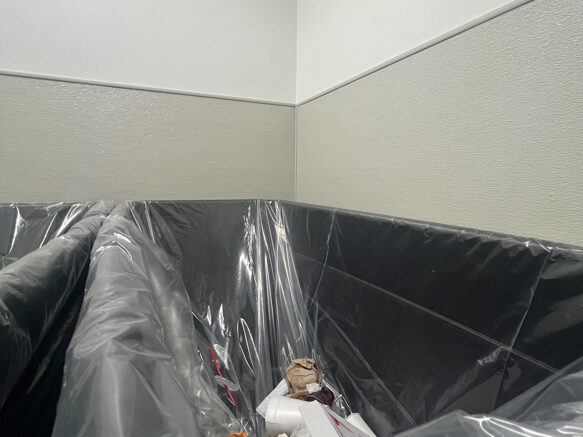By Claudia Tanksley
With the closest recycling center nearing 20 minutes from campus, tossing a plastic bottle in the trash is the easiest option for any busy college freshman.
Living in a dorm causes many students to generate more trash than usual. Single-use plastics are accessible and more affordable than other environmentally friendly options.
Despite these excess amounts of plastic and cardboard, the Flagler College dorms do not give the option for students to recycle.
Joe Bruce, executive director of facilities on campus, has been aware of this issue for the past three years that he has worked at Flagler.
“There are multiple reasons why recycling hasn’t really spread out. First off, recycling everywhere is undergoing some changes. Recycling as a whole is very expensive, as well as time and labor intensive. The profitability isn’t as high so it’s limited to certain items or it’s just eliminated,” Bruce said.
This is a question that comes up every semester, typically, it comes down to staffing.
“It’s really expensive and it’s not well developed enough to do it. For us specifically, we don’t have enough staff to take out trash, let alone recycling,” Bruce said.
Another issue that arises is the lack of space to place a large dumpster for recycling.
“Depending on location, there may not be an actual recycling bin close by in the city. If that is the case, then the recycling has to be loaded onto a truck, which isn’t realistic for our staff. We can’t just add more dumpsters either. You need city clearance, and there’s just not enough space,” Bruce said.
There have been attempts to introduce recycling into the dorms before.
“The biggest issue in the dorms is that regular trash gets put in the recycling bin as well. When this happens we run the risk of the city saying we aren’t going to take your recycling anymore because there’s a bunch of trash in there,” Bruce said.
Jessica Veenstra is the department chair of the natural science department. She has a Ph.D in environmental science, soil science and sustainable agriculture from Iowa State University.
“Recycling has some value, but I have a sense as an environmental scientist that sometimes recycling is overpromoted as a solution. The vast majority of a mixed recycling stream is often contaminated, it’s really hard to sort, and the majority of it ends up being thrown away anyway,” Veenstra said.
Throwing away things that can be recycled is harmful, but it’s hard to avoid. It all ends up in a landfill.
“Plastic will never decompose, and there’s not much hope for things like paper and cardboard either because the conditions that exist in a landfill are low oxygen, and it’s very hard for things to decompose,” Veenstra said.
Not all hope is lost, however, it is still better to recycle than to not. But the main problems at play are the economics of recycling.
“We have to look at the bigger system. The market for recycling has decreased over time. If there’s no market, an actual recycler to sell to, then it’s going to end up in a landfill, even if it comes in clean, sorted, and organized,” Veentra said.
Overall, education of recycling can always be improved.
“Better education on recycling would help. There’s a whole concept of wishful recycling, you wish this item would be recycled so you put it in there hoping it will. In reality it’s better to just throw it away. It’s better to put less, and that will lead to things actually being recycled,” Veentra said.
In terms of Flagler College’s overall efforts to be sustainable, the effort is good but not enough.
“I would say it’s something that we talk about to a degree in terms of our core values. We have to think about sustainability in three different contexts: Environmental, economics and social impacts. So I think That Flagler does a lot in the intersection where it conserves resources and saves money,” Veentra said.



Be the first to comment on "Recycling in Flagler College dorms: absent where we need it most?"